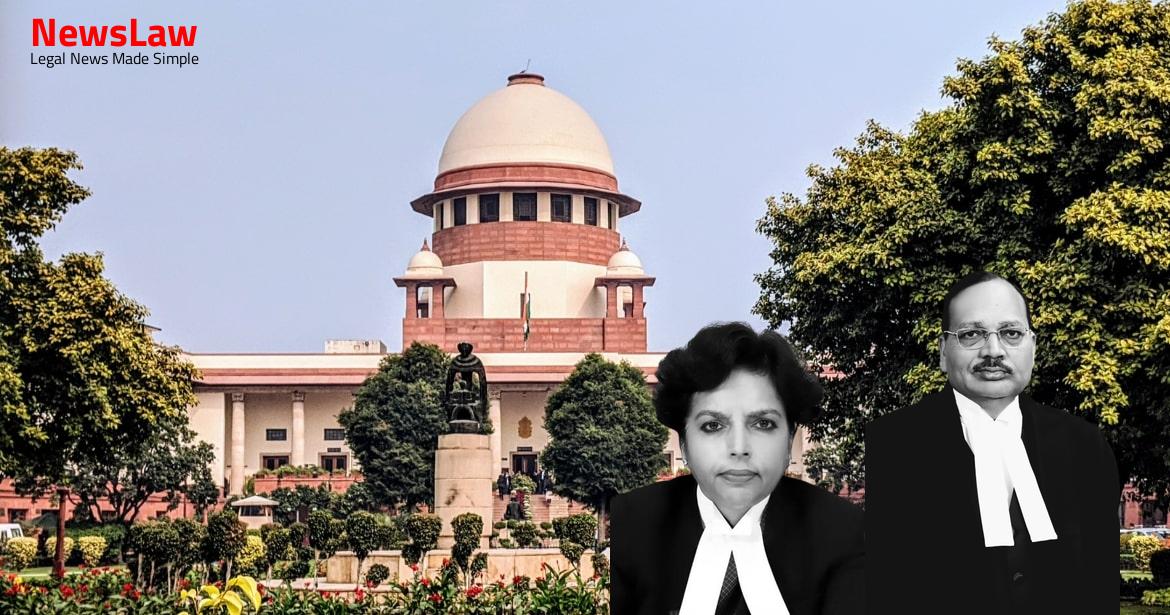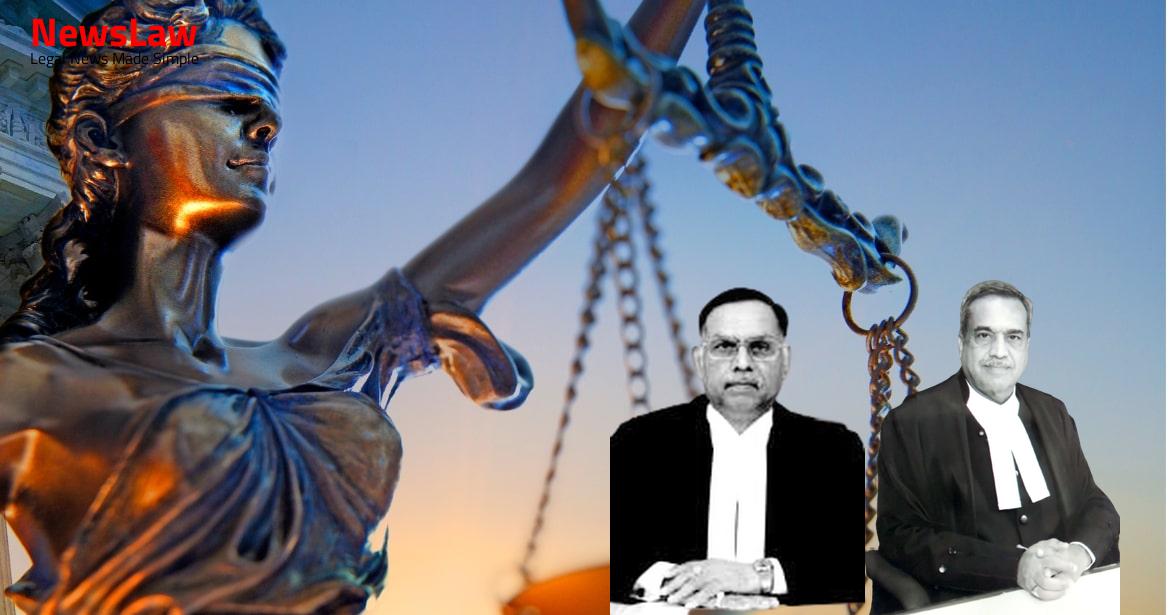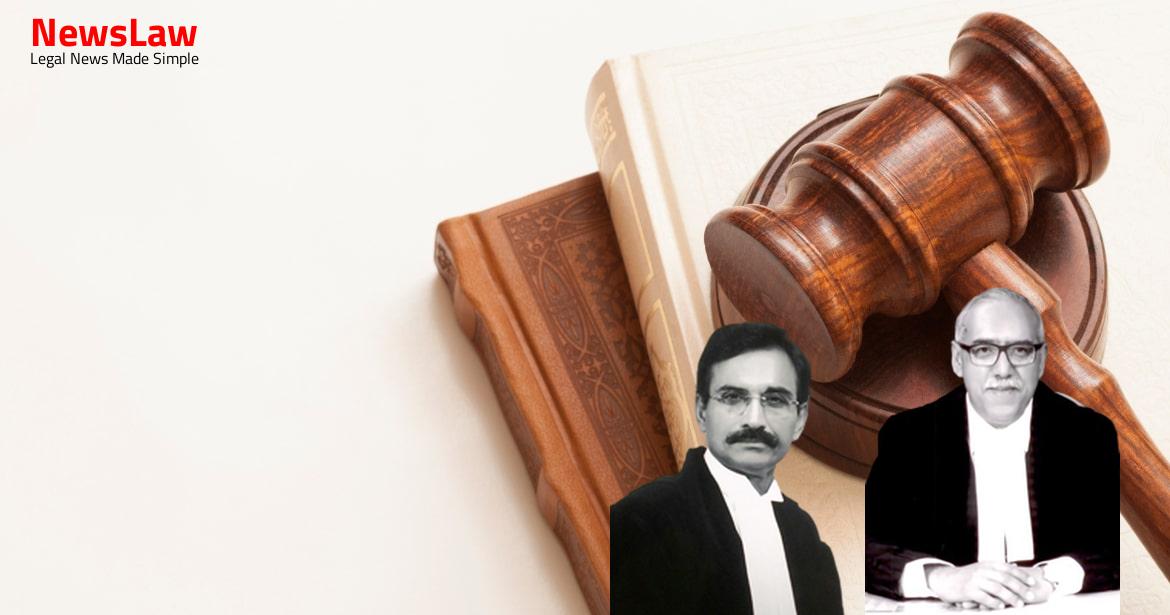Delve into the intricate legal analysis provided by the court regarding the principles governing the granting of anticipatory bail in a recent case. The court’s in-depth examination sheds light on the complexities of bail decisions and the factors that must be considered. This analysis serves as a valuable resource for those interested in understanding the nuances of legal procedures and judgments.
Facts
- Complainant’s daughter was married to the son of the Respondent-Accused on 28-07-2017.
- Respondent-Accused’s petition for similar relief in the High Court was dismissed on 08.03.2018.
- Complainant assured to settle the household squabble by visiting the marital home.
- Arrest warrants issued against the Respondent-Accused due to non-cooperation with investigation.
- Deceased was harassed and physically tortured by accused family members on dowry demands.
- Allegations of exploitation of deceased by Respondent-Accused and depriving her of rest.
- Deceased died in suspicious circumstances on 02-10-2017.
- Accused allegedly administered poison leading to the death of the deceased on 01.10.2017.
- FIR lodged against 7 accused persons, including the Respondent-Accused.
- High Court granted anticipatory bail to Respondent-Accused charged under Sections 304B, 302, 120B of IPC.
- Medical evidence supports the fact of poisoning.
- Anticipatory bail application of Respondent-Accused was rejected by Sessions Court on 21.12.2017.
- Vicious cycle of abuse continued despite deceased being a full-time lecturer at a government college.
- Deceased informed the Complainant of physical torture due to dowry demands on 30-09-2017.
- Respondent-Accused joined the investigation but evaded arrest, leading to declaration as an absconder.
- She sought parity with co-accused Daksh Adya who was granted anticipatory bail by the court.
- Respondent-Accused was granted interim bail on 03.12.2020 and joined the investigation on 07.12.2020.
- Respondent-Accused filed petitions in High Court to quash the ‘proclaimed offender’ status and seek anticipatory bail.
- High Court granted both reliefs, setting aside the absconder status and granting anticipatory bail.
Also Read: Analysis of Suppression of Information in Employment Selection: Legal Perspective
Arguments
- The Learned State Counsel has supported the cause of the Appellant-Complainant.
- The aggrieved Complainant argues that the High Court erred in overlooking established principles for granting anticipatory bail.
- The Complainant contends that the High Court misapplied its discretion in the matter of anticipatory bail.
Also Read: Analysis of Cheating and Forgery in Passport Case
Analysis
- Cancellation of bail is to be dealt with separately from the granting of bail.
- The offence in this case is serious and reflects a need for societal reform.
- The respondent accused absconded for over two years before seeking bail.
- The High Court’s grant of anticipatory bail was based on incorrect premises.
- Parity with co-accused was not a valid ground for the bail granted.
- Bail can be revoked if irrelevant factors were considered or relevant material ignored.
- Each bail case must be analyzed based on its unique factual circumstances.
- Rejection of bail at the initial stage and cancellation of bail granted are to be considered differently.
- Cancellation of bail requires very cogent and overwhelming circumstances.
- Grounds for cancellation of bail include interference with justice, evasion, or abuse of concession.
- Possibility of accused absconding is also a reason for bail cancellation.
- Bail should not be cancelled mechanically without considering supervening circumstances.
- The High Court wrongly accorded the benefit of parity in favor of the Respondent-Accused.
- The Appellant-Complainant’s version should be viewed with suspicion due to his legal background as a retired District Attorney.
- The deceased met a tragic end within three months of her marriage, raising suspicions.
- Though premature to term it as Sections 302 or 304B IPC offence, the abrupt death of the young woman shattered her dreams.
- The Investigating Agency should be allowed a free hand to investigate the role of the Respondent-Accused in the unnatural death of her daughter-in-law.
- Suspicion revolves mainly around the Respondent-Accused and her family members, while others have been cleared by the investigating agency.
Also Read: Discrepancy in Date of Birth: Court’s Legal Analysis
Decision
- Respondent-Accused will be free to seek regular bail before the concerned Trial Court after surrender
- Any bail prayer will be decided as per law, without influence from this order
- The impugned order of the High Court dated 28.01.2021 is set aside
- Respondent-Accused is directed to surrender before the Trial Court within one week
- Observations made are limited to present proceedings and not a judgment on the case’s merits
Case Title: VIPAN KUMAR DHIR Vs. THE STATE OF PUNJAB (2021 INSC 598)
Case Number: Crl.A. No.-001161-001162 / 2021



